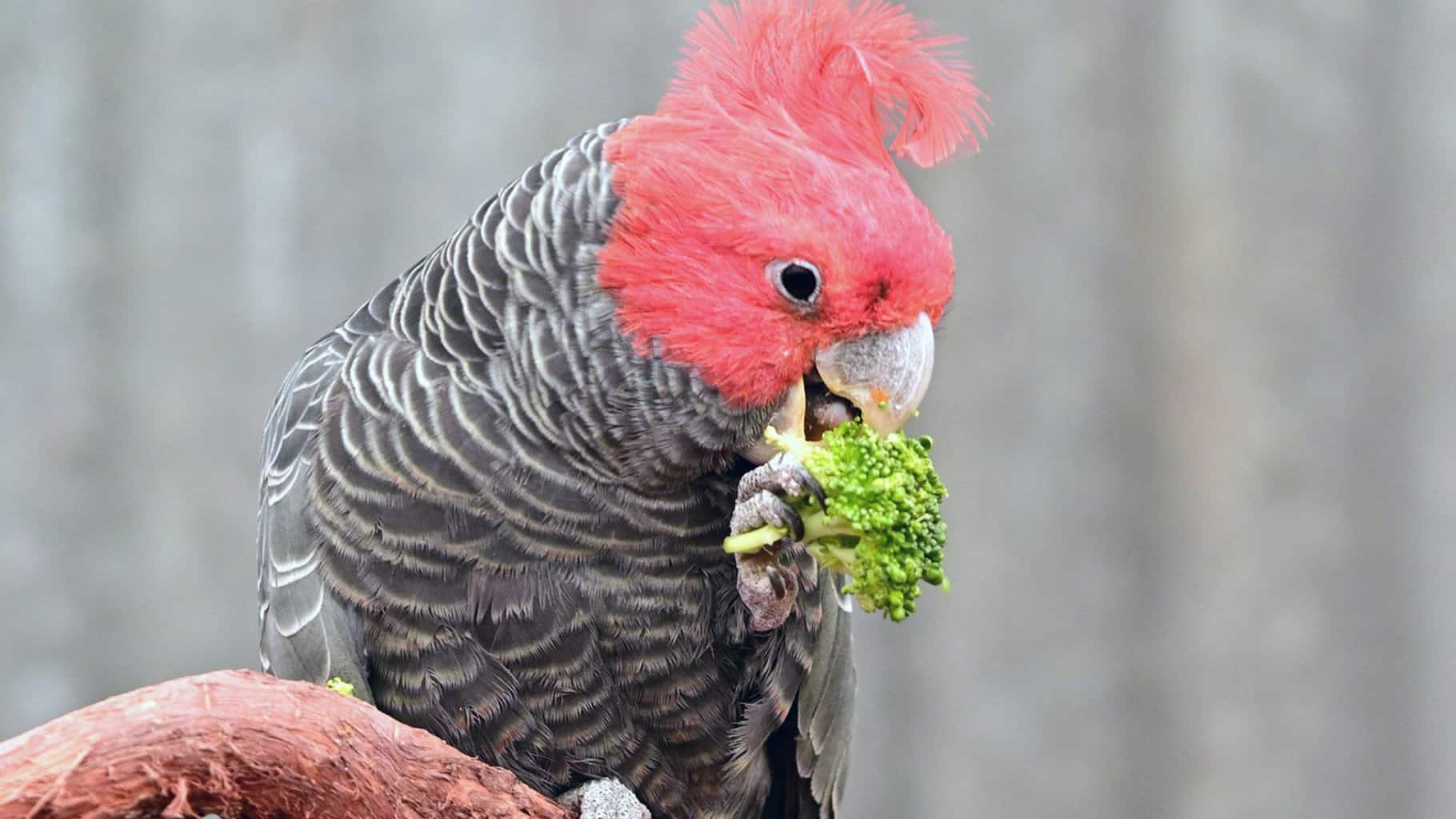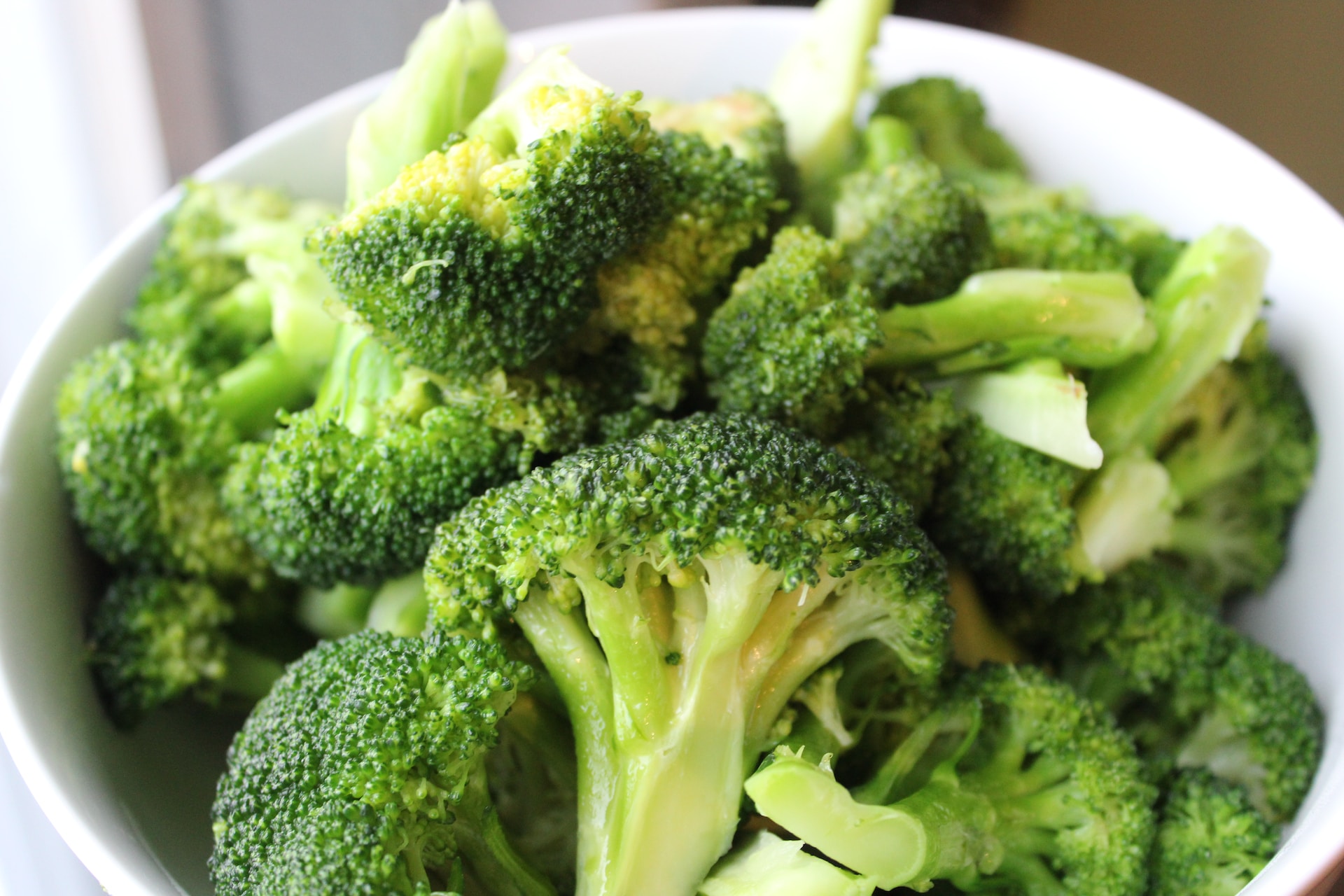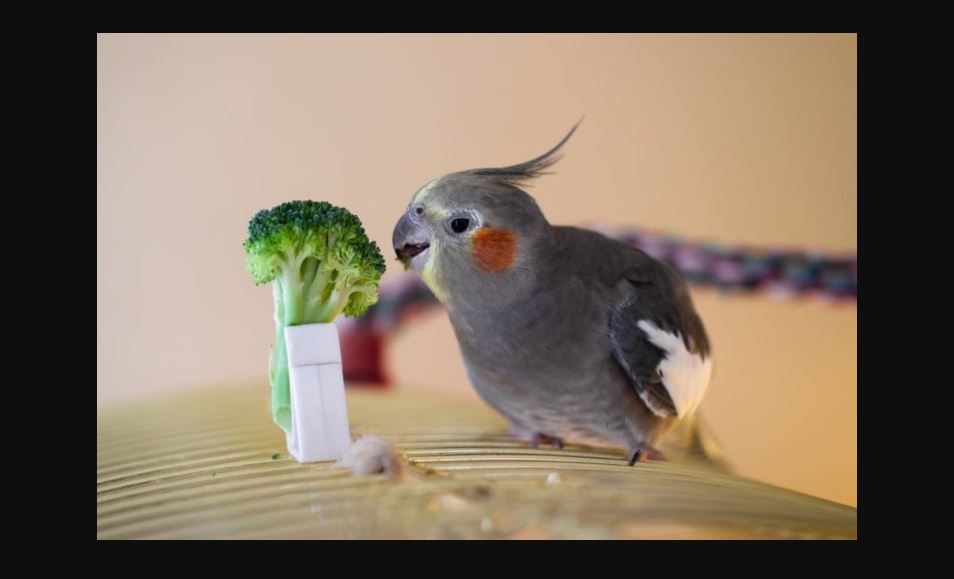Can Birds Eat Broccoli? Understanding The Benefits And Risks
The question of whether birds can eat broccoli is one that often crosses the minds of bird enthusiasts and concerned individuals alike. While many people are well aware of the dietary habits of these avian creatures, the notion of offering them a cruciferous vegetable like broccoli may raise eyebrows. In this article, we will uncover the nuances of the "Can Birds Eat Broccoli" query and gain a better understanding of how this vegetable can affect our feathered friends.
Author:Velma BattleReviewer:Michael RachalNov 16, 202318.8K Shares251.4K Views

The question of whether birds can eat broccoli is one that often crosses the minds of bird enthusiasts and concerned individuals alike. While many people are well aware of the dietary habits of these avian creatures, the notion of offering them a cruciferous vegetable like broccoli may raise eyebrows.
To unravel the mysteries behind this dietary dilemma, it's essential to delve into the topic with a discerning eye, considering both the potential benefits and risks associated with feeding birds this green, fibrous vegetable. In this article, we will uncover the nuances of the "Can Birds Eat Broccoli" query and gain a better understanding of how this vegetable can affect our feathered friends.
Can Birds Eat Broccoli?
Yes, many birds can eat broccoli. Broccoli is a nutritious vegetable that can be a part of a balanced diet for certain bird species. It is particularly popular among parrots and other larger pet birds. However, it's important to prepare and serve broccoli properly to ensure it is safe for your feathered friends.
Here are some key considerations:
- Cooking and Preparing Broccoli: Birds can eat both cooked and raw broccoli, but it's generally better to cook it slightly to make it easier to digest. Steaming or blanching broccoli is a common way to prepare it for birds.
- Small Portions: Broccoli should be offered in moderation. It should not make up the majority of a bird's diet. A diverse diet is crucial for their nutritional needs.
- Monitor Reactions: Introduce broccoli gradually and observe how your bird reacts to it. Not all birds will like or tolerate broccoli, so it's important to ensure it's well-received.
- Avoid Seasonings and Spices: Never add seasonings, spices, or salt to broccoli when preparing it for birds. Plain, unseasoned broccoli is best.
- Cleanliness: Ensure that the broccoli is clean and free from pesticides or chemicals. Wash it thoroughly before serving.
- Remove Tough Stems: Remove any tough or fibrous stems as they can be difficult for birds to digest.
- Safety Considerations: Some bird species may have preferences for certain foods, and individual birds can have specific dietary requirements. Always consult with a veterinarian or avian specialist to ensure your pet bird's dietary needs are met.
It's important to note that while broccoli can be a healthy addition to a bird's diet, not all birds will like it, and some may have allergies or sensitivities. It's essential to offer a varied diet to meet the specific nutritional needs of your feathered companion. If you are uncertain about introducing new foods to your pet bird's diet or have concerns about their health, consult with a veterinarian who specializes in avian care for guidance.
Nutrition For Birds In Broccoli
Feeding birds vegetables, such as broccoli, offers a myriad of advantages, with nutrient provision ranking among the top benefits. Broccoli stands out as a favored food choice for many bird species.
The nutritional components present in broccoli hold significant importance for avian health. This green vegetable is a rich source of vitamins, minerals, and antioxidants, all of which play a crucial role in bolstering a bird's immune system and promoting overall well-being. In essence, broccoli's abundance of essential nutrients contributes to the maintenance of excellent health among your feathered friends.
- Vitamin A:Broccoli is a valuable source of vitamin A, a nutrient critical for maintaining a bird's vision, skin, and plumage health. Additionally, vitamin A plays a pivotal role in enhancing a bird's immune system by regulating its response to viruses and bacteria.
- Amino Acids:Amino acids are vital for promoting overall health and protein synthesis in birds. They hold particular significance for avian species, as they rely on protein for growth and repair. A noteworthy example of an amino acid is arginine, which aids in the development of antibodies, fortifies the immune system and ensures long-term health.
- Minerals:Birds depend on a variety of minerals to support their metabolic functions and regulate blood pressure. These minerals, including calcium, potassium, magnesium, phosphorus, zinc, iron, and others, are essential for maintaining a bird's well-being and vitality.
- Vitamin B:The B vitamins are a group of essential nutrients that contribute to a bird's metabolic processes and nervous system functioning. They also provide an energy boost and enhance a bird's mood, reducing the likelihood of behavioral issues. Incorporating these vitamins into a bird's diet can have a positive impact on their overall health and disposition.
- Broccoli boasts a wealth of essential vitamins and minerals, including thiamin (B1), riboflavin (B2), niacin, pantothenic acid, folate, pyridoxine (B6), biotin, and choline. Furthermore, fresh broccoli is particularly rich in vitamin C, which can be vulnerable to heat-induced degradation during cooking.
- In the leafy parts of broccoli, you'll find calcium, while the stalks contain manganese, and iron is present throughout. These minerals play crucial roles in supporting various bodily functions.
- Broccoli also stands out as an excellent source of antioxidants, including vitamin C and quercitin-3-glucoside, a flavonoid. Antioxidants serve to combat free radicals, which have the potential to harm cells and contribute to conditions like cancer. While the definitive link between antioxidants and cancer prevention remains a subject of ongoing research, there is a prevailing belief that antioxidants play a role in maintaining the health of body cells.
- One of the most intriguing aspects of broccoli is its inclusion of glucoraphanin, a compound known for its liver detoxification properties. Scientific studies have demonstrated its potential in preventing certain types of cancer, adding to the diverse health benefits associated with this cruciferous vegetable.
Risks And Considerations
When it comes to feeding broccoli to birds, there are certain risks and considerations that should be taken into account to ensure the health and well-being of the birds. While broccoli can be a nutritious addition to their diet, it's essential to be aware of the potential drawbacks and concerns:
- Digestive Sensitivity: Some birds may have sensitive digestive systems, and broccoli can be challenging to digest, especially if it's not cooked or prepared properly. The tough, fibrous parts of broccoli can be difficult for birds to break down.
- Gas-Producing Vegetable: Broccoli is known to produce gas during digestion, and this can cause digestive discomfort in birds. Overconsumption can lead to bloating and gastrointestinal issues.
- Calcium-Phosphorus Ratio: Broccoli has a relatively high phosphorus content compared to calcium. An imbalanced calcium-phosphorus ratio can negatively affect bone health in birds. Therefore, it's important to ensure that calcium-rich foods are also part of their diet to maintain proper bone structure.
- Oxalates: Broccoli contains oxalates, which can interfere with the absorption of calcium in the digestive system. This can potentially lead to calcium deficiencies, which can be harmful to birds.
- Allergies and Preferences: Birds, like humans, can have individual preferences and allergies. Some birds may simply not like the taste of broccoli, while others might have allergic reactions or digestive sensitivities to it.
- Pesticide Residues: Ensure that the broccoli is free from pesticides or chemicals. Birds can be more sensitive to these substances than humans, and exposure to pesticides can be harmful.
- Moderation: As with any food, broccoli should be offered in moderation. It should not constitute the majority of a bird's diet. A balanced and varied diet is key to meeting their nutritional needs.
- Consult a Vet: If you have concerns about your bird's diet or health, it's essential to consult with a veterinarian who specializes in avian care. They can provide tailored advice and recommendations based on your specific bird's needs.
While broccoli can be a nutritious addition to some birds' diets, it's important to be mindful of the potential risks and consider the individual dietary needs and preferences of your feathered friends. Always introduce new foods gradually, monitor their reactions, and consult with a veterinarian if you have any concerns about your bird's diet and health.
Tips For Introducing Broccoli To Birds
Introducing broccoli to birds, especially if they are not accustomed to it, can be a gradual process. Here are some tips to help you introduce broccoli to your feathered friends in a way that maximizes acceptance and minimizes potential issues:
- Start Gradually: Begin by offering a small, bite-sized piece of broccoli. You can offer it alongside their regular food. This gradual introduction allows the bird to become familiar with the new food without feeling overwhelmed.
- Observe Their Reaction: Pay attention to how the bird reacts to the broccoli. Some birds may be curious and start nibbling on it immediately, while others may be more cautious. It's essential to be patient and allow the bird to explore the new food at their own pace.
- Mix with Familiar Foods: Incorporate broccoli into their existing diet by mixing it with foods they already enjoy. For example, you can blend small pieces of broccoli with their regular seeds or pellets.
- Vary the Presentation: Birds can be visually stimulated by different presentations. You can try offering broccoli in various forms – steamed, raw, or slightly cooked. Some birds may have preferences for the texture or temperature of the broccoli.
- Positive Reinforcement: Encourage your bird's interest in broccoli by offering praise or treats when they eat it. This positive reinforcement can help create a positive association with the new food.
- Serve Broccoli with Favorite Foods: You can serve broccoli with some of their favorite foods. For example, place a piece of broccoli on top of a treat or mix it with a small portion of fruit that they love.
- Remove Uneaten Portions: If the bird doesn't eat the broccoli initially, remove any uneaten portions after a short period to prevent spoilage. You can offer it again during the next feeding.
- Patience and Persistence: It may take time for your bird to accept broccoli. Be patient and persistent in your efforts to incorporate it into their diet. Some birds may need repeated exposures before they become comfortable with this new addition.
- Monitor Digestive Health: Keep an eye on your bird's digestive health when introducing broccoli. Ensure they don't experience digestive discomfort, such as bloating or diarrhea. If you notice any adverse reactions, consult with a veterinarian.
- Balanced Diet: Remember that broccoli should be a part of a balanced diet. It should not replace their primary source of nutrition. Continue to provide a variety of foods that meet their nutritional needs.
By following these tips and being attentive to your bird's preferences and reactions, you can successfully introduce broccoli into their diet and provide them with a nutritious and enriching food option.
Alternative Bird-Friendly Vegetables
Offering a variety of bird-friendly vegetables can help ensure that your feathered friends receive a balanced diet. Here are some alternative vegetables that are often well-received by birds and provide essential nutrients:
- Carrots: Carrots are a favorite among many birds. They are rich in beta-carotene, which is essential for eye health and overall well-being.
- Leafy Greens: Leafy greens like spinach, kale, and Swiss chard are packed with vitamins and minerals. They provide essential nutrients while adding color and texture to your bird's diet.
- Bell Peppers: Bell peppers are not only colorful but also high in vitamin C, which is beneficial for a bird's immune system. They are crunchy and fun for birds to eat.
- Zucchini: Zucchini is a mild-tasting and easy-to-digest vegetable. It can be offered cooked or raw and is a good source of fiber and vitamins.
- Sweet Potatoes: Sweet potatoes are a nutritious choice for birds. They are rich in beta-carotene, vitamins, and fiber. Cooked sweet potatoes are often well-liked.
- Cucumbers: Cucumbers are refreshing and hydrating. Birds can enjoy them as a cool, watery treat, especially in hot weather.
- Pumpkin: Pumpkin is rich in fiber and a source of vitamins. Offer pumpkin seeds as well for a variety of textures and tastes.
- Broccoli Leaves: If your bird enjoys broccoli, consider offering the leaves in addition to the florets. The leaves are softer and may be more palatable to some birds.
- Cauliflower: Like broccoli, cauliflower is a cruciferous vegetable. It can provide variety in taste and texture for your bird's diet.
- Corn: Corn on the cob or fresh corn kernels can be a fun and tasty addition to their diet. It's a good source of energy.
- Peas: Birds often enjoy peas, whether fresh or thawed frozen peas. They are a good source of vitamins and fiber.
- Cilantro and Parsley: These herbs can add flavor and variety to your bird's diet. They are a source of vitamins and can be used as a garnish.
- Squash: Various types of squash, such as acorn and butternut squash, can be offered to provide a different taste and texture.
- Beets: Beets are a source of fiber and essential nutrients. You can offer small, cooked beet pieces to your birds.
- Green Beans: Green beans are a source of fiber and vitamins. Offer them cooked and chopped into bite-sized pieces.
Remember that not all birds have the same preferences, so it's a good idea to experiment with different vegetables and observe your bird's reactions. Additionally, always provide fresh, clean vegetables and remove any uneaten portions to maintain cleanliness and prevent spoilage. A balanced and varied diet, including a mix of these bird-friendly vegetables, will help ensure that your avian companion receives the necessary nutrients for optimal health.
Can Birds Eat Broccoli? - FAQ
Can Doves Eat Broccoli?
For veggies, you can chop or mince up most anything that is bird-safe: carrots, broccoli, snap peas, dandelion greens, kale cauliflower, lettuce, spinach (in small amounts), edamame, bell peppers, etc. Plenty of clean, fresh water at all times (served in a clean dish every day).
Can I Feed My Lovebird Broccoli?
Seed lacks important vitamins and minerals so their daily diet should be supplemented with small portions of fresh fruit and vegetables such as apples, carrots, beans, peas, corn, broccoli, and spinach. Never feed your Lovebirds lettuce or avocado, and always remove the seeds from apples.
What Vegetables Do Birds Like The Most?
Bright yellow, red, and orange vegetables and fruits, including bell peppers, carrots, sweet potatoes, squash, mango, papaya, and cantaloupe, all contain a great deal of vitamin A which is a critical nutrient in a bird's diet.
Conclusion
The question of whether birds can eat broccoli is a multifaceted one, and our exploration of the benefits and risks associated with this dietary choice has provided valuable insights. While broccoli can indeed be a nutritious addition to the diets of certain bird species, it also carries potential risks that should not be ignored.
As responsible caretakers of our feathered friends, it is crucial to consider the specific dietary requirements and preferences of the birds in our care. In doing so, we can ensure that we offer them the best possible nutrition while safeguarding their well-being.

Velma Battle
Author
Travelling Expert

Michael Rachal
Reviewer
Travelling Expert
Latest Articles
Popular Articles

